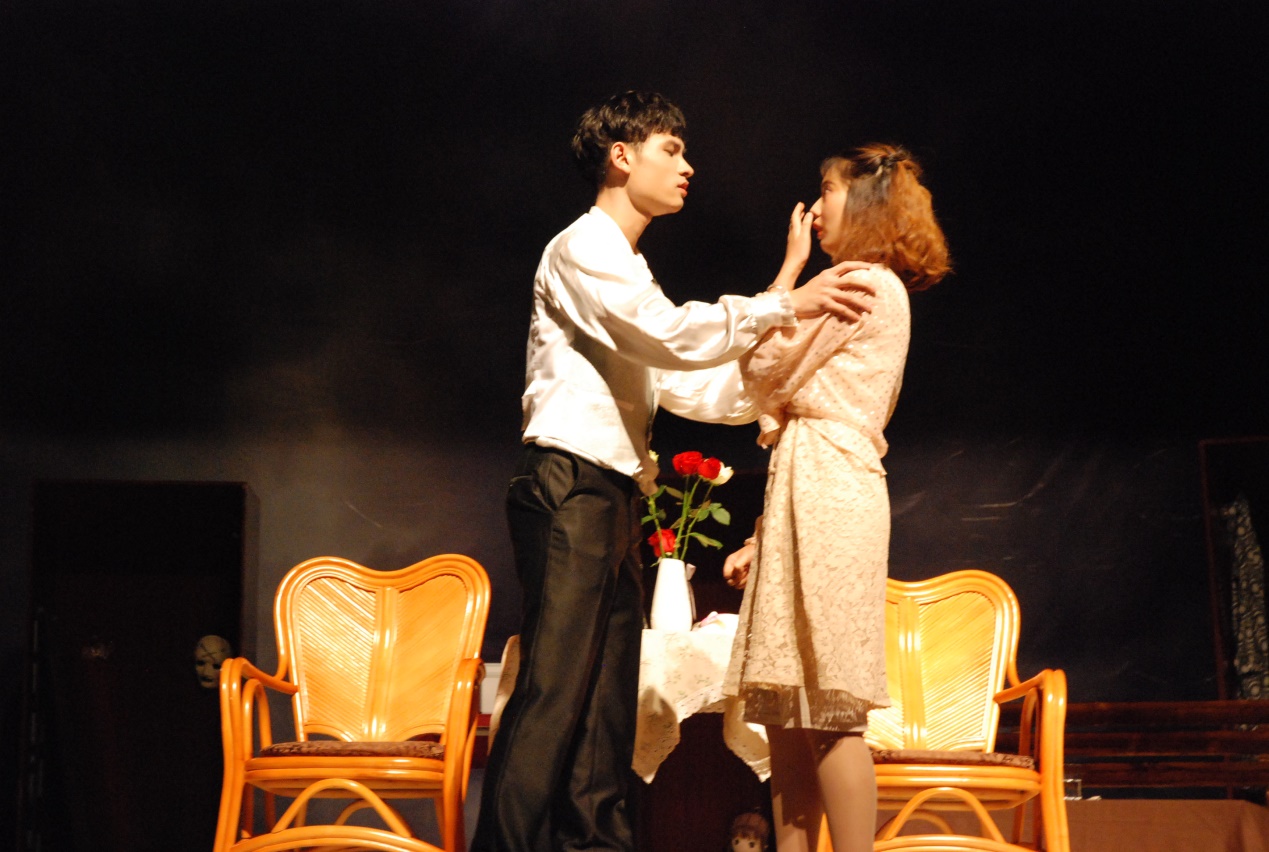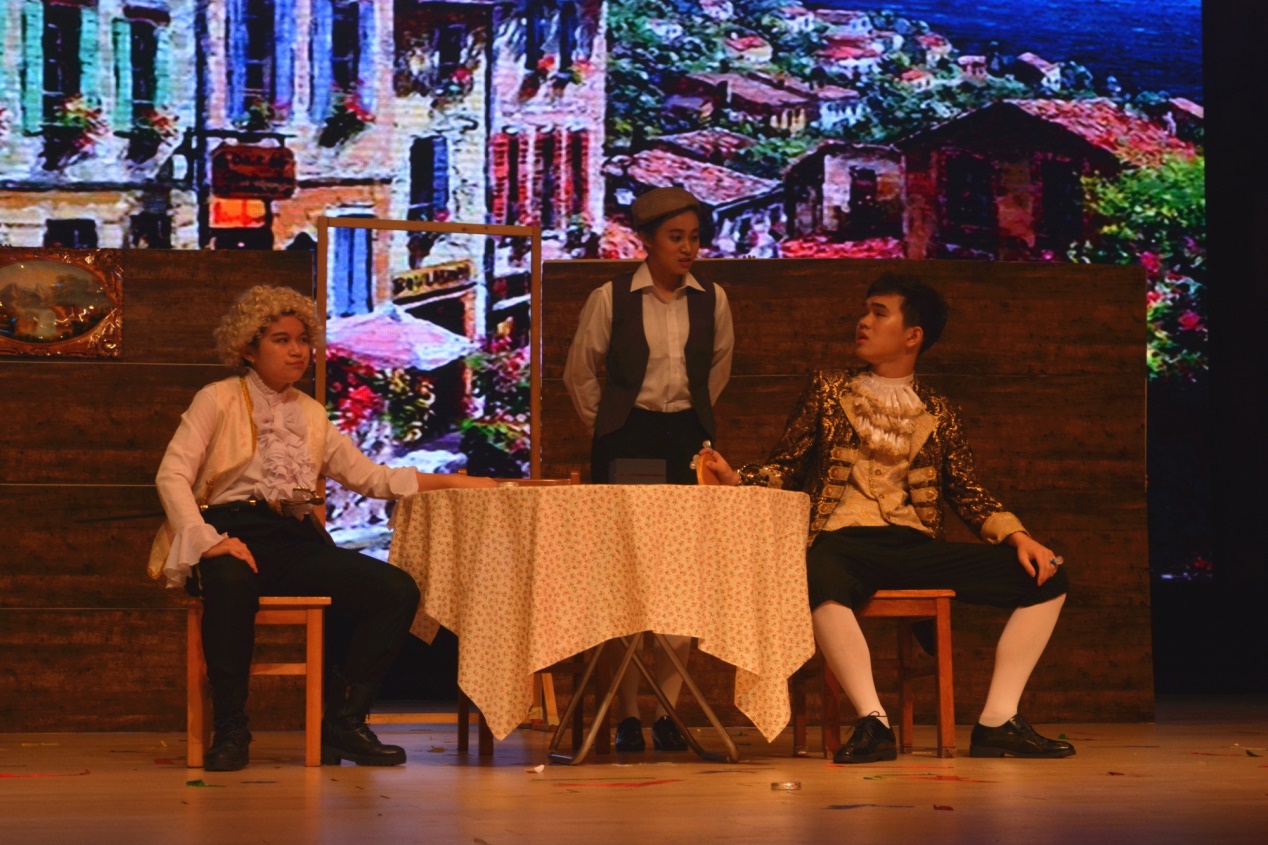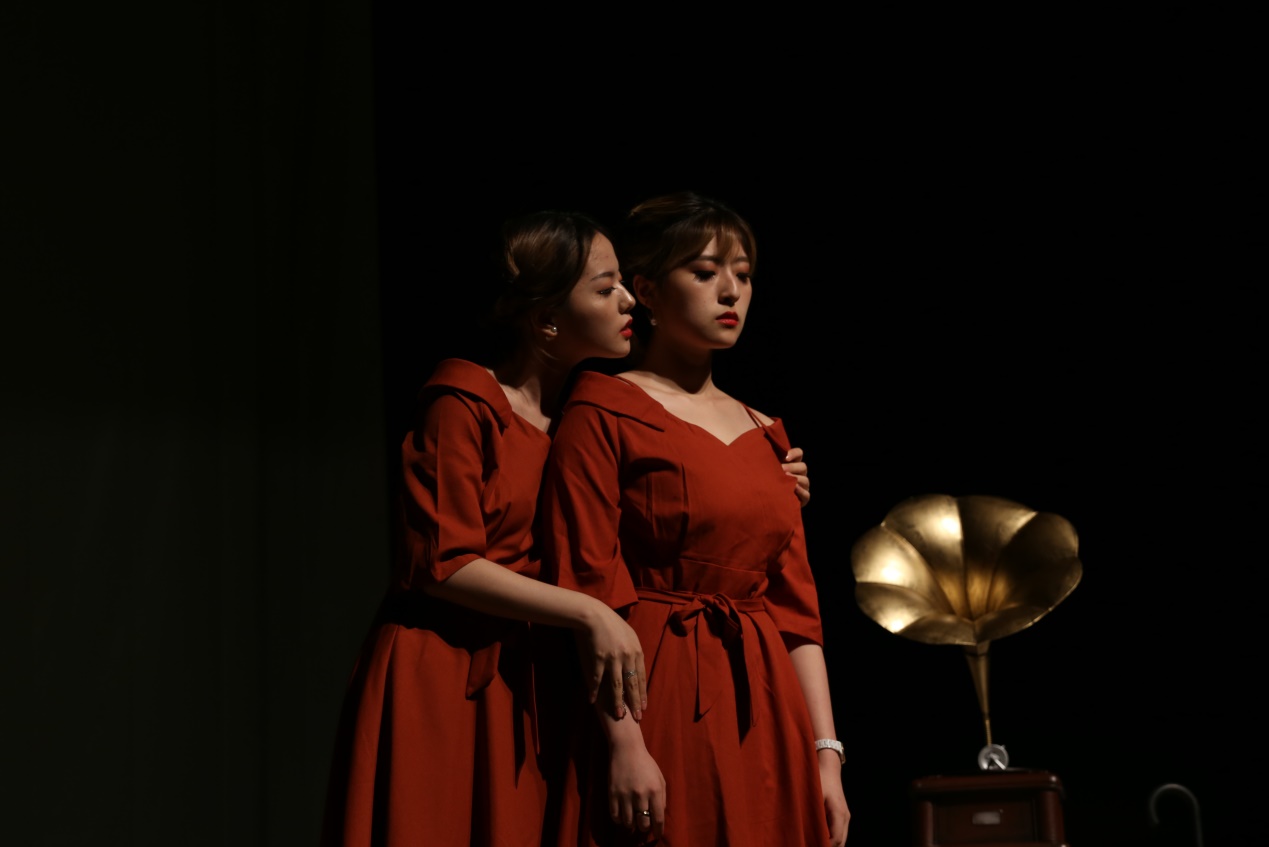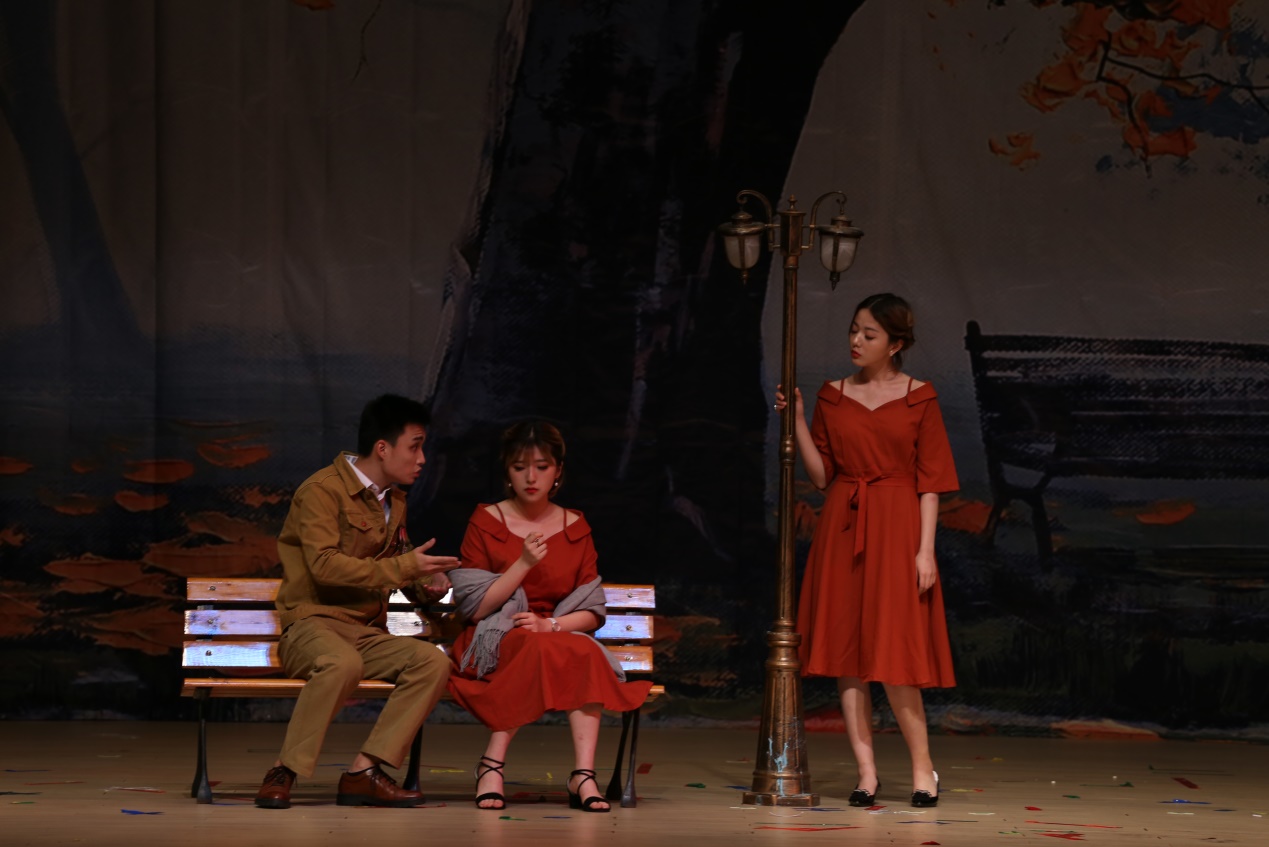On May 6th, the 11th European Drama Competition and Closing Ceremony of the European Cultural Festival, hosted by the Faculty of European Languages and Cultures, aroused great enthusiasm among GDUFS students in Yunshan Hall on the North Campus. The theme of this year’s event was Clara’s Dream, which aimed to commemorate Clara Schumann (1819-1896), one of the most important German pianists of romantic period. This year, eight plays were performed in different European languages by students of respective majors, and they quickly lit up the atmosphere in the hall.
One of the most anticipated plays this year was Der Schrank (The Closet) from the German Department. From its name, it is likely for you to guess it is about some dark secrets and you are right. Just like the saying goes “a skeleton in the cupboard”, everyone in this play had their own dark secrets. A madam was pregnant, but her husband was opposed to the idea of having the baby with the excuse of a shortage of income. Under great pressure, this poor madam turned to the Sister for help who in the first place spared no effort to persuade her to give birth to the baby, but in the end surrendered and gave an address to the madam. This was not a normal address; instead it led the madam to an underground clinic that helped young ladies like the heroine to get rid of their unborn babies. With great determination and courage, the madam went through agony during the process. But her husband threatened the Sister that he would sue her if she did not prosecute the young madam who had an abortion as a witness. In court, the young madam found that the judge was actually her husband who claimed to be an actor before. Shocked and hurt, she confessed but she also found the underlying secret of the judge, her husband, that he was a drug addict, while the ending of the clinic’s doctor was bad, too. He hid his lover’s body and fell in love with the skeleton, which caused his prostitute wife to kill him in the closet out of jealousy. If you were not on that spot, it is difficult to describe the sensation this play brought to people. It was universally acknowledged that this play was the most complicated and insightful of all plays on that evening. Most importantly, unlike other language plays adapted from previous work of famous writers, this German Department’s play was 100% original, setting them apart from the others. It was a true wonder.

The husband persuaded her wife to get rid of the baby
Among those dramas, perhaps the Italian one – la locandiera (The Mistress of the Inn) – was the most popular. It illustrated a story about a mistress who was so smart and beautiful that an earl (an aristocratic position), a marquis (also an aristocratic position) and a knight were all crazily charmed with her. However, all of them were hypocritical, arrogant and shallow men. After a fight among the jealous men, the mistress surprisingly chose her loyal and kind-hearted servant to be her husband, which disappointed and confused the other three men. The drama caroled brave people who pursue true love, freedom and criticised people who chase wealth and fame. Now it was perfectly performed by the students from the Italian Department. The well-prepared costumes and screens made the scene vivid, and the rhythmed lines and lively music made the audience totally immersed in the attractive story.

The marquis (left) and the earl (right) argued with each other
Additionally, the drama Au Crépuscule (At Dawn) of the French Department, adapted from the film Cléo de 7h à 5h (Cléo from 7 a.m. to 5 p.m.), told a story about Cléo, a famous singer in Paris. She was anxiously waiting for her physical examination result for she might have stomach cancer. Meanwhile, her image in the mirror just came alive. Unlike the unhappy her, her image seemed to be optimistic about the result and encouraged her. She then went wandering on the street where she met a soldier. He was going to the battlefield the next morning and he was so frustrated about it. The night fell. Cléo’s image started to talk to him while the true Cléo kept wandering. After a long, discouraging talk, the soldier shot himself. At this time, Cléo came back and told her image that she had realized that she needed to face the result bravely instead of being pessimistic. But being affected by the soldier’s emotion, the image chose to shoot herself too, bringing the story to its end. This drama won this year’s first prize, the Best Stage Effect Award and the Best Leading Actress Award. It’s the third year in a row that the French Department has won the first prize.

Cléo’s image encouraged her to stay optimistic

Cléo met the frustrated soldier
ZHANG Zhaodan, the leading actress from the French Department, said that she actually wanted to portray the image of Cléo for she thought that Cléo suppressed herself too hard at first, and this didn’t fit her own personality which is always being blunt about things. She also stated that the Best Leading Actress Award will mean nothing without the whole team.
When asked about their feelings towards tonight’s grand show, one student pointed out that if a play could bring happiness and joy to the audience then it doesn’t matter if it is artistically meaningful, while another girl hugely extolled the backstage contributors, especially the dubbers who have done so well that they successfully built up the atmosphere of each play: some are mysterious and some are agitating or light-hearted. She also said that she invited several students from other universities who were impressed by the various kinds of languages that definitely indicated our university’s unique characteristics.
Just like this year’s theme Clara’s Dream, it was indeed a dreamy and beautiful night that brought much pleasure and delight to us.
Prizes:
Best Play: Au Crépuscule (the French Department)
Best Stage Effects: Au Crépuscule (the French Department)
Best Leading Actor: FU Zihao (the French Department)
Best Leading Actress: ZHANG Zhaodan & GUANTIAN Yangzi (the French Department)
Best Supporting Actor: LIAO Yuanhao (the Spanish Department)
Best Supporting Actress: LI Xinqian (the Spanish Department)
Best Dubbing: CHEN Wenyu (the German Department), LU Qi & ZHU He (the French Department)

